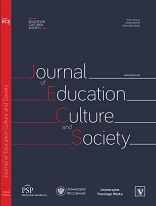MANDARIN DISCRIMINATION IN HONG KONG: FOUR MAINLAND CHINESE SOJOURN TEACHERS’ EXPERIENCE OF SYMBOLIC VIOLENCE
MANDARIN DISCRIMINATION IN HONG KONG: FOUR MAINLAND CHINESE SOJOURN TEACHERS’ EXPERIENCE OF SYMBOLIC VIOLENCE
Author(s): Yulong Li, Daibo XiaoSubject(s): Politics / Political Sciences, Political Sciences, Inter-Ethnic Relations
Published by: Fundacja Pro Scientia Publica
Keywords: Mandarin discrimination;symbolic violence;anti-colonialism;Hong Kong
Summary/Abstract: Thesis. After the handover of Hong Kong’s sovereignty to China in 1997, the Hong Kong Special Administrative Region government stipulated a trilingual (English, Cantonese, and Mandarin) and biliterate (English and Chinese) policy, in order to include Mandarin as an additional co-official language together with the original English and Cantonese. Until the handover, the use of Mandarin was restricted in British colonial Hong Kong. Since the handover, however, Mandarin and its users have experienced some resistance by local Hong Kong people. Method. In an attempt to better understand this resistance and its implications, this study adopts Pierre Bourdieu’s field, habitus, and capital theory, to analyse the anti-Mandarin discourse that has prevailed in the ensuing two decades. Via narrative inquiry, this study explains the habitus of four Mandarin speaking teachers, while especially noting their clashes with the anti-Mandarin discourse, and the symbolic violence they suffered in the field. Conclusion. The study concludes with a reflection on the clash between the teachers’ struggles with the discourse from a postcolonial perspective, and it also considers the legal issues involved in protecting mainland Chinese as a minority in Hong Kong.
Journal: The Journal of Education, Culture, and Society
- Issue Year: 11/2020
- Issue No: 2
- Page Range: 499-520
- Page Count: 22
- Language: English

